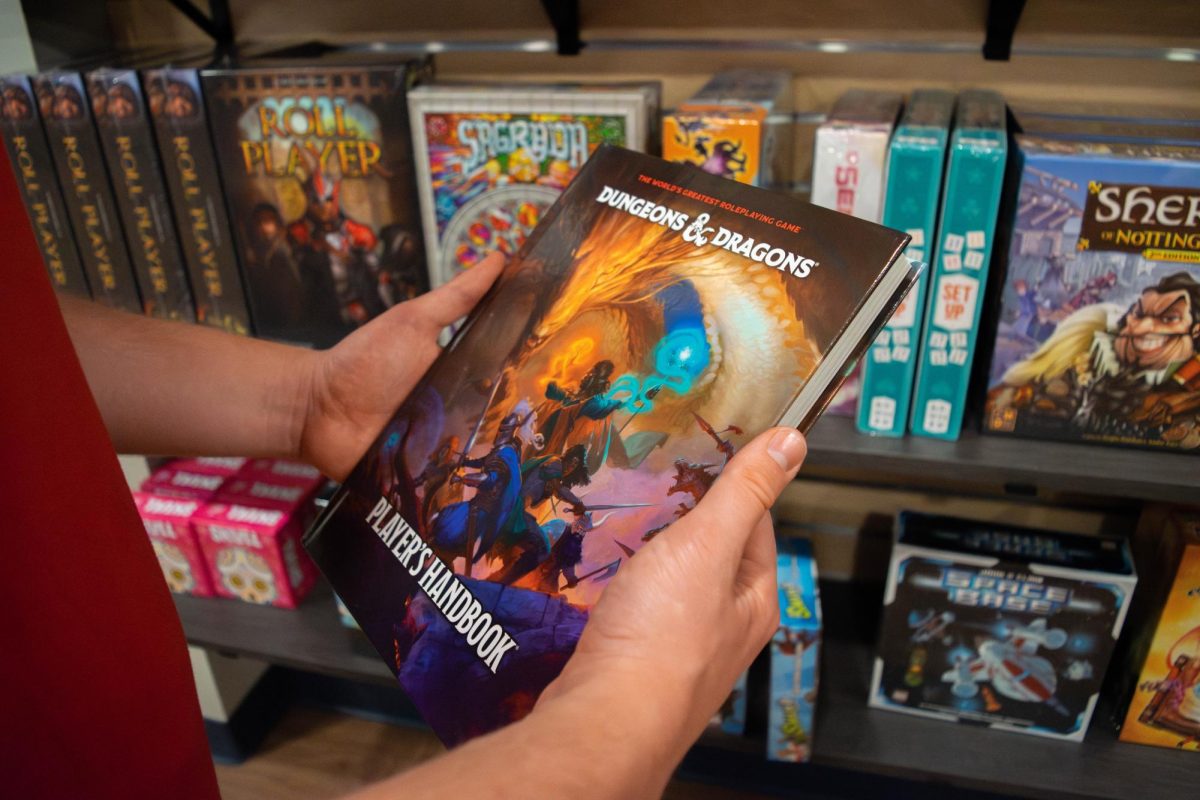On Sept. 17, Wizards of the Coast released the 2024 Edition of the Dungeons & Dragons Player’s Handbook. This release follows an extensive period of playtesting, as stated in the book, and commemorates the 50th anniversary of Dungeons & Dragons, according to D&D Beyond. The Badger Herald read the new Player’s Handbook, which is 384 pages and costs $49.99 at most major retailers.
Other major changes include the transition from the term “race system” to the “species system,” which removes many of the generalizations made in previous editions and the changed background system, which intends to replace many of the same elements the old “race system” had.
The most noticeable continuity in the 2024 Player’s Handbook was the core game philosophy. The staples of Dungeons & Dragons — role-play, combat, exploration and interacting with others — received ample attention. The Player’s Handbook took great steps to show D&D is still ultimately a social game.
The Badger Herald spoke to Jakob Westin, President of the Tabletop Roleplaying Games Club at UW about many of the recent changes in the 2024 Player’s Handbook.
Westin said while some changes — such as the renaming of ‘Race’ to ‘Species’ — were appreciated, a majority of the decisions made in the 2024 Player’s Handbook restricted player creativity. Westin also said the removal of ‘personality traits’ in the character-creation process was an especially large hindrance to said creativity.
“We have gone back to a system that is more obtuse and obfuscated,” Westin said.
Dungeons & Dragons originated in Lake Geneva, Wisconsin, and was created by Gary Gygax, according to Wisconsin 101. The Badger Herald also spoke with Kurt Griesemer, the Wisconsin Historical Society’s specialist in elementary education, about how Dungeons & Dragons’ history in the state manifests itself today.
According to Griesemer, Lake Geneva celebrates its gaming past through events such as Gary Con, a large gathering of role-playing game players, and Lake Geneva Dragon Days, a weekend-long festival celebrating Dungeons & Dragons. The town also hosts a permanent exhibit at the Geneva Lake Historical Society, Griesemer said.
There are many other conventions held in Wisconsin to celebrate RPGs, such as PlatteCon in Platteville, Wisconsin and Gamehole Con in Madison, according to Griesemer.
Griesemer also spoke about the educational aspects of role-playing games such as Dungeons & Dragons. Griesemer said Dungeons & Dragons presents a wide variety of informal learning opportunities that accompany an enjoyable game.
Dungeons & Dragons games require minimal investment of time and material and can teach participants problem-solving skills, respectful communication, acting abilities, reading comprehension — especially regarding tables and charts — and much more, according to Griesemer.
“It’s the combination of skills that makes D&D stand out,” Griesemer said.
Westin and Griesemer both discussed why UW students — and people in general — should consider playing Dungeons & Dragons or other role-playing games.
Westin said creativity is the most prominent appeal of Dungeons & Dragons since it allows expression with relatively few skills required. According to Westin, hosting or playing Dungeons & Dragons is significantly more accessible than other creative practices such as writing a book or developing a video game.
“[If] you have an idea in your head … TTRPGs are the easiest way to share it with other people,” Westin said.
Role-playing games are also appealing due to their escapist nature, Westin said. Role-playing games provide the opportunity to explore identities through a fictional lens and are especially empowering for LGBTQ+ communities, according to Westin.
Role-playing games also allow players to emulate their favorite fictional stories. Many participants look to pre-existing fictional works as inspiration for role-playing games and through playing they can experience alternate perspectives on said works, Westin said.
Dungeons & Dragons is a generally risk-free way to express creativity and bond with others, according to Griesemer. Dungeons & Dragons’ lack of a universal objective means players can innovate with one another, potentially making lifelong friends in the process.
“There is no win or lose condition in D&D — it’s about creating the story and the experience together,” Griesemer said.



